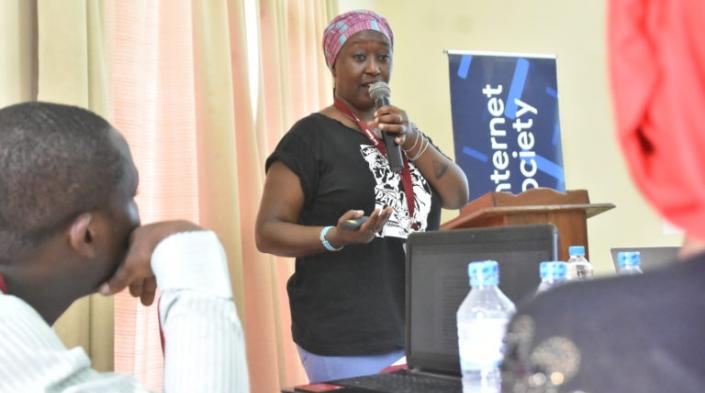
Publié le
Dernière mise à jour de cette page le
No matter how many times I sit in a space that is reflecting on, learning from or critiquing issues around gender, I am always both pleased and flummoxed by the range of perspectives in the room, with some people gasping at the idea that gender is and always has been a spectrum and other people strongly affirming the importance of LGBTIQA inclusion in all spaces including, in this case, on the internet.
APC invited me to participate in this year’s African School on Internet Governance (AfriSIG), which took place in Zanzibar, less than 100 metres from the warm waters of the Indian Ocean. From the first day to the last, it became evident that AfriSIG is a place for deep learning about the infrastructure and mechanics behind the internet, but also about policy and governance issues, ranging from how domains are structured and registered to the geopolitical dynamics within national, regional and international internet governance spaces.
I spent the first three days frantically swimming in acronym soup – ccTLDs and DNSSEC, ICANN and DDoS, words that I had never heard before. As it turns out, the internet is not simply this magical thing that some people have access to and others do not. In fact, the politics and mechanics behind internet access in Africa are a complex maze of histories and varied realities. By the third day of AfriSIG, once I had learned how to paddle head-above-water in very technical conversations, I could finally agree with Avri Doria, who expressed that the internet is indeed an entity unto itself or, as she put it, sui generis. Getting a behind-the-scenes look at the internet and meeting women and men from across Africa working to make the internet in their communities faster, easier to access and more affordable made it seem like a more human space in many ways.
Continue reading on the AfriSIG website.


